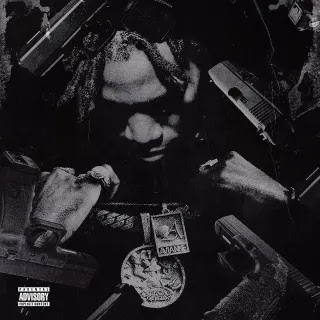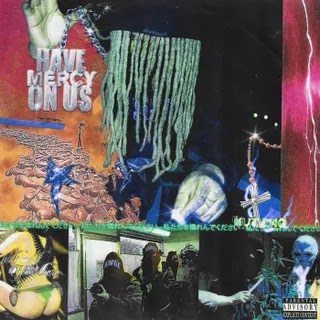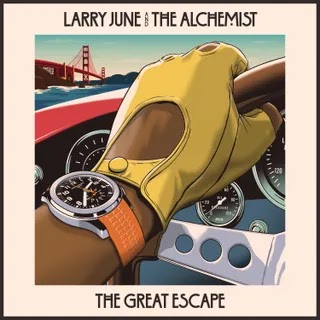Today on Pitchfork, we are celebrating the messy, game-changing, era-defining genius of the Wu-Tang Clan with five new reviews: two albums, two solo projects, and a film score.
When RZA met Quincy Jones in 1997, the rap producer had just finished conquering the world. Wu-Tang Forever, the Wu-Tang Clan’s unwieldy double-album follow-up to Enter the Wu-Tang (36 Chambers), was No. 1 in the country, and “Triumph,” a six-minute posse cut with no hook, was playing alongside sugary Puff Daddy and Mase hits on mainstream rap radio. The dense, grimy sound RZA pioneered forever altered his genre, and the deal he’d negotiated with Loud Records amounted to perhaps the most decisive industry takeover in music-business history. There would seem to be nowhere to go next, but the man who called himself the Abbott was in awe of Jones, so he humbled himself. What should I do next, he asked the super producer, in order to crest the next wave, to climb the next summit? The answer, Jones told him, was to score a movie.
Around that same time, Jim Jarmusch was toying with the notion of a movie about a sympathetic killer. The downtown New York City filmmaker conceived of the sad-eyed hitman Ghost Dog—played, in his mind, by Forest Whitaker, an actor so inextricable from his role that Jarmusch has said that if Whitaker turned him down, the movie would never have existed—as a Black man living on a rooftop, tending to pigeons and reading from the Hagakure, an 18th-century text on the Bushido code, while he waits for assignments from his mob handler. When a hit goes wrong and the Mafia decides Ghost Dog must die, he goes up against them all, one by one.
The story mimicked the structure of many classic crime noir or kung fu films, but Jarmusch wanted to treat the framework just as he used the Western in 1995’s Dead Man: as a bemused meditation on humankind’s attempts to impose meaning and order on a meaningless existence. His movies were as much about sound as they were sight—Dead Man was as much a vehicle for the wordless score by Neil Young as it was for lead actor Johnny Depp—and for the Ghost Dog score, he had only one man in mind. After settling his script and securing Whitaker’s commitment, he tapped a few mutual acquaintances and requested a meeting with the RZA.
The pair made strange bedfellows at first—RZA in army fatigues, Jarmusch with his silver-white pompadour and black sunglasses, like Lou Reed and Andy Warhol remixed into one person. But for both of them, the story of Ghost Dog had biographical echoes. Jarmusch grew up in 1950s and ’60s Akron, on the street where the Gambino family had their social club, during a time when the mafia’s real-life grip was fading as quickly as pop culture’s fascination with it was booming. RZA, who had gone to school with members of the Castellano family, understood the magnetic pull of mafioso culture better than anyone. He agreed to score the film before Jarmusch had even shot it. The pairing felt like a secret handshake.
Even so, it took a while for RZA to adjust to Jarmusch’s strange, silence-filled style. His first compositions were made with a much more conventional movie in mind—lush, traditionally cinematic, fit for the Hong Kong action flicks that were starting to pop up on American shores, but all wrong for the quizzical, emptied-out stage on which Ghost Dog’s action takes place. In Ghost Dog, the Mafia is a joke, a bunch of cut-rate mobsters with central-casting names like Valerio and Francis and Louie and Vinny, saying things like “forget about it” and “you’re gonna get whacked.” They meet at dollar stores and hole-in-the-wall Chinese restaurants instead of red-carpeted clubs, and they fend off their wheedling landlord instead of breaking kneecaps. They are the Rosencrantzes and Guildensterns of the other mob movies, workers with no real boss, and they live by a Mafioso code in the same way a goldendoodle puppy feels the stirrings of wolf ancestry when it sniffs the air. The music had to be a barely felt pulse, the only lingering remnant of a time when warriors clashed steel and clans fought for honor.
Jarmusch told him to go with his instincts, and so RZA went back to craft a score that better suited the mood. Along the way, he tapped into places in his creative mind he’d never been before. When you were making a track for a rapper, there had to be sturdy rhythmic footholds in place. But scoring for a film meant, as RZA put it, “the music can be as awkward as you want it to be.” “Awkward” became a useful byword for RZA’s Ghost Dog work. The tracks are left intentionally lop-sided, full of irregularities; many of them seem like bits that broke and floated free from some larger landmass. The opening theme leaves yawning silences so wide they’re like head fakes, potholes for your ear. “Samurai Theme” is built on a martial-sounding sample that triggers just off the beat, an audio companion to the sight of the ungainly Ghost Dog practicing swordplay. Like J Dilla, who also fiddled with hip-hop’s internal time clock, RZA often smudged the border between intention and accident, but he never experimented with these timing gaps as boldly as he does here.
The centerpiece is “Flying Birds,” a weightless interlude that captures the film’s mood so perfectly Jarmusch returned to it again and again. “Flying Birds” plays whenever Ghost Dog’s messenger pigeons wing their way from one chipped Jersey City storefront window to another, filmed greasy and unbeautiful against gray skies—a vision of freedom, however constrained. For the RZA, it was a strikingly quiet piece of music, untroubled by shouting voices or kung fu samples. You could easily slip it onto a playlist of Warp artists like Autechre or Aphex Twin—a prospect that feels like a given today, but not so much in 1999, the year of the movie’s release, when the worlds of hip-hop and independent rock and electronic music felt much more remote from each other.
In this way, Jim Jarmusch granted RZA entrée into one of the few worlds he hadn’t penetrated—the insular universe of mostly white hipsters, art students, and film buffs who might have admired RZA and enjoyed the Wu-Tang Clan, but who perhaps wouldn’t think to to slot the architect of the group’s sound alongside experimental-music figures like Björk, Laurie Anderson, or Sonic Youth. For all of Wu-Tang’s furious brand extension, Ghost Dog was RZA’s first foray outside of hip-hop, and it came at a pivotal point. As the millennium approached, the pressures on the Wu-Tang Clan had grown overwhelming, and the group was fracturing. Contract squabbling had begun in earnest, and thanks to an onstage outburst by Ghostface at Summer Jam, the Wu-Tang were officially banned from Hot 97, New York’s premier hip-hop station. One by one, the Wu-Tang Clan members asked to be released from their contract with the RZA, leaving each to fend for themselves as a solo star. RZA was unmistakably an icon, but it looked as if his brothers were drifting away from him. The path towards his future collaborations—with Björk, with Yoko Ono—and to the moody, twilit (and Raekwon-reviled) 8 Diagrams begins here.
From this point, RZA would push outward into the artistic demimonde, where he naturally belonged. Soon, he would be consulting on Quentin Tarantino films, writing screenplays. Revisiting Ghost Dog today, it’s startling to see how, despite being written and directed by Jarmusch, it plays as a melancholy requiem for the Wu-Tang’s already-lost golden era, one in which Wu affiliates make unusual cameos (Timbo King and Dreddy Kruger, freestyling on a park bench) and every CD that’s loaded into a player happens to start playing Wu-Tang music. Jersey City in its most unforgiving light evoked the Shaolin of Wu myth, and some of the movie’s most indelible moments are prolonged shots of Whitaker’s impassive face through a windshield as Wu-Tang beats fill the car. Near the movie’s end, RZA himself strolls on camera to pay his respects to Ghost Dog, a fellow dreamer whose dreams changed the lives of those around him. In many ways, Ghost Dog plays like a shadow autobiography of RZA himself. Both are citizens of lost worlds, adhering to ancient codes in a fallen society where the only thing separating the visionary from the fool is commitment.
















0 comments:
Post a Comment